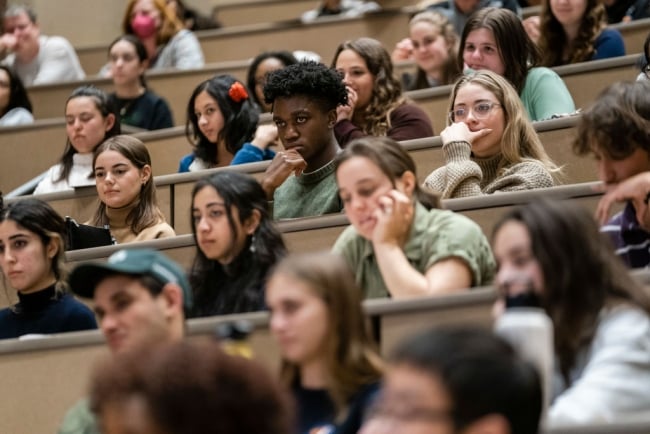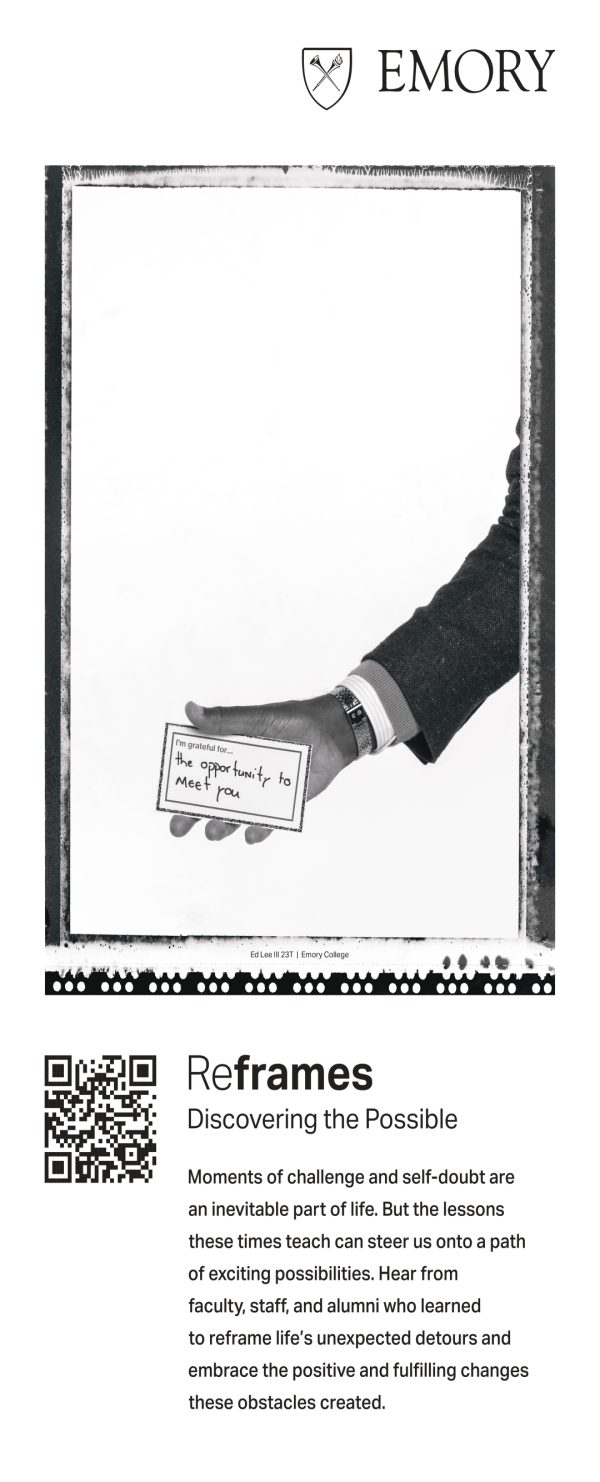You have /5 articles left.
Sign up for a free account or log in.

Emory University students say there is an unspoken competition between peers. Administrators are looking to encourage vulnerability through a new campaign on reframing experiences.
The Washington Post/Getty Images
A 2022 study of 16- to 25-year-olds found 85 percent of participants identified having perfectionist traits, mostly focused on academic achievement.
A new initiative from Emory University in Atlanta encourages vulnerability from the campus community to combat perfectionism and encourage help-seeking behaviors among struggling students.
The campaign launched Feb. 8 and features administrators who share when they have fallen short of their expectations and how they persevered.
What’s the need: At Emory, students say there is an unspoken competition among their peers because many students were high achievers in high school. The average GPA among the Class of 2027 was 3.89, with students earning between a 33 or 35 on the ACT and between 1470 and 1560 on the SAT.
“The unspoken element is crucial,” Emory senior Karyn Lisker says. “No one is telling you to be perfect—it’s the culture.”
Students face pressure to earn the highest grades, land the most prestigious internship or get a bid to the top Greek organization on campus, says Emory senior Lexy Campbell.
Researchers have identified three types of perfectionism: self-oriented perfectionism, other-oriented perfectionism and socially prescribed perfectionism. Students in the U.S. are more likely to report having self-oriented perfectionism, or self-ascribed high standards, than their peers in Canada or the U.K., according to a 2022 study.
Perfectionism can reward the student who is recognized by peers, faculty or others in their performance, but it can also result in a fear of failure or create unrealistic self-expectations.
Toxic perfectionism is redundant, because no one is capable of perfection, says James Raper, associate vice provost of student health and wellness at Emory. “I very much encourage all of us, but especially students … to consider differently; instead of being something we’re chasing, it’s something that’s chancing us: a fear of failure.”
The campaign: The Reframes campaign relies on the stories of setbacks and failures of Emory administrators.
In the materials, campus leaders share their stories of shortcomings in black-and-white videos and photos. For example, Raper shares the story of failing out of college and how he worked at his academics to earn his spot back.

The Reframes campaigns feature black-and-white videos and photos of Emory University administrators and their stories of failure and success.
Emory University
Raper, a former college counselor, was inspired to share testimonies because he learned the power of telling his stories during sessions with students to promote their own confidence and show that one’s circumstances do not limit their future.
“For high-achieving students, sometimes they can feel as though, if things don’t go their way, their dreams are dashed and they can’t meet the goals they set for themselves,” Raper says. Hearing from administrators can put their own circumstances in context and inspire hope.
Stakeholders from across the institution partnered in the campaign, with communications professionals creating the digital materials and videos.
A future consideration is creating student testimony videos, creating peer-to-peer support stories.
The impact: As members of Emory’s Student Wellness Advisory Council (SWAC), seniors Campbell and Lisker work alongside Raper to provide student-centered supports.
Campbell sees the campaign as a way to create a brand of well-being that characterizes Emory, one that students can resonate with and feel empowered by. Having influential leaders on campus sharing their own vulnerabilities can hopefully prompt conversations and inspire similar vulnerability.
“I really appreciate that they’re willing to share their stories with us for this larger endeavor,” Lisker says.
In a perfect world, Emory students would be more confident in seeking help and feeling safe to discuss their failures, Campbell and Lisker say.
“I feel like Emory has a lot of great services that are underutilized because there’s a culture of not asking for help,” Campbell says.
It’s also important for students to get access to this kind of help and opportunities for practice while in college, because life doesn’t stop while you’re enrolled, Lisker says. “It’s a training ground for those things beyond. You should be comfortable and safe to experiment with different experiences.”
A bigger focus: This campaign is just the start of Emory’s work in encouraging student wellness. Later this year, the university will host events to encourage students to participate, including dinners to provide tools to fight perfectionism.
The goal is to help students in all dimensions of their wellness and identity. Emory staff will expand services like well-being coaching and one-on-one and group consultations with experts, as well as contemplative practices.
In fall 2024, Emory will hard launch its well-being framework, branching through eight dimensions of wellness to infuse wellness throughout campus culture, Raper says.
One consideration for staff is how to encourage practice of wellness without putting a new dimension of achievement on students. SWAC members have expressed they’d enjoy earning grades or completing a checklist on an app to guide them through healthy habits, but this doesn’t help the address perfectionism; it compounds the problem.
Staff are looking to meet students where they are, acknowledging their interests and reframing them to promote wellness, instead.
“Well-being is often an individual journey … It also takes a village, and this is an example of that,” Lisker says.
Get more content like this directly to your inbox every weekday morning. Subscribe here.



